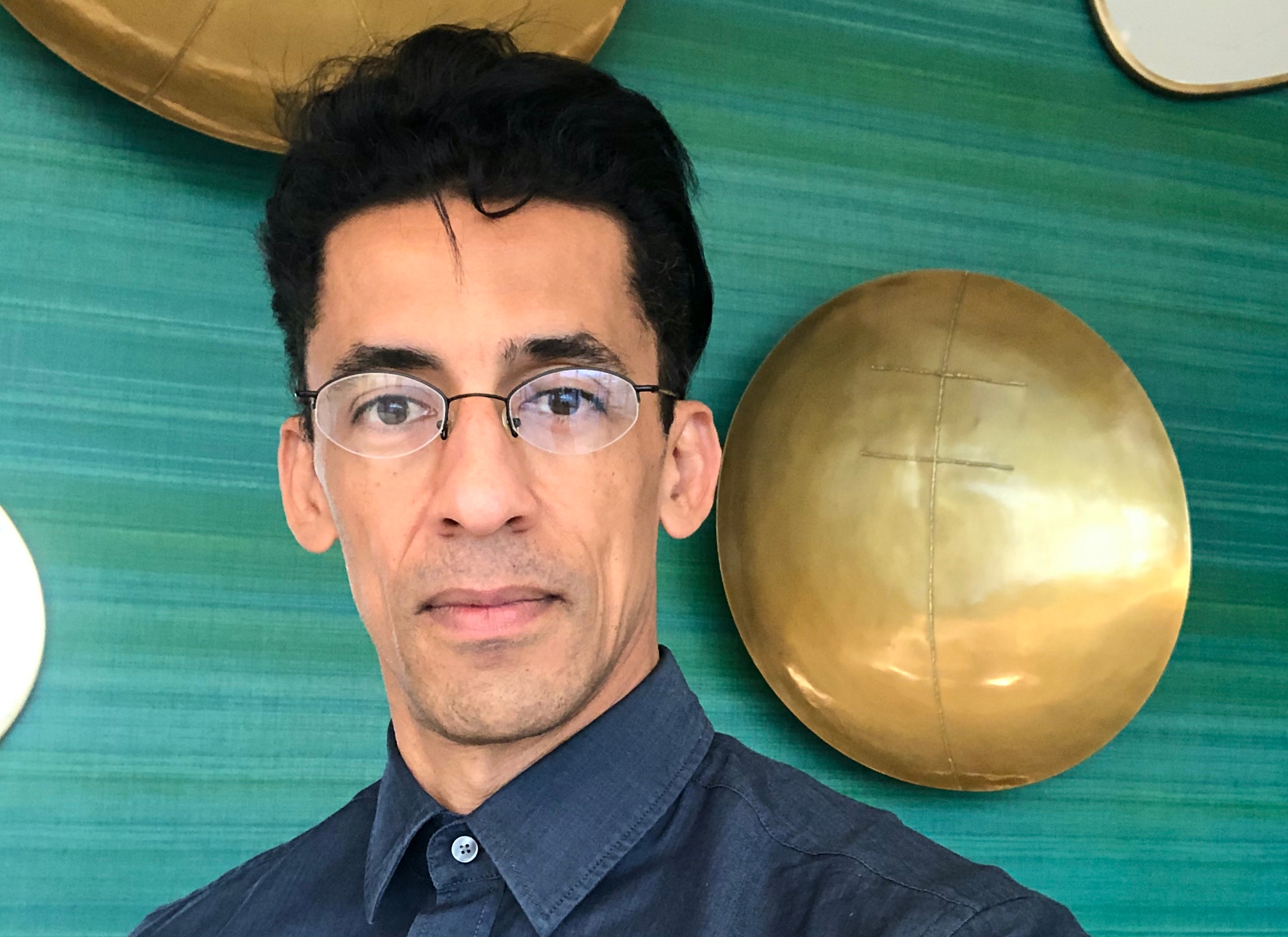The Commonwealth Cyber Initiative 5G testbed is where researchers come to play
CCI advances Virginia’s stake in 5G technology.
Aloizio Pereira da Silva is the newly appointed CCI 5G Testbed director.

The Commonwealth Cyber Initiative’s newly appointed 5G testbed director, Aloizio Pereira da Silva, envisions a 5G playground where students, researchers, and industry can have some fun testing out new ideas that promise to transform medicine, transportation, agriculture, work, education, and more.
The CCI 5G Testbed will help speed up advancements by providing researchers and industry a destination to try new approaches, said da Silva, who joined CCI in October. “We need a place to play and get the technology to work perfectly,” he said. “We can play around with the building blocks on a small scale and then move to large scale.”
5G could be 100 times faster than 4G but there’s still a lot of work to do, including building out the 5G networks with closely spaced pizza box-sized cells and creating devices and applications to make quick use of 5G, da Silva added. Latency — the pesky delay we experience when a video call glitches — must be addressed, too.
Once 5G takes hold, it could change our daily lives from the flashier future of self-driving cars to the basics of how crops are grown, da Silva said. But perhaps even more importantly, 5G can improve access to education and jobs for areas that traditional fiber networks have missed.
“I see one of the biggest impacts of 5G is its ability to connect rural communities and remote areas,” da Silva said. “People can access information for education or telework and stay in their communities.”
Da Silva will draw upon his experience at the Platforms for Advanced Wireless Research (PAWR) program to develop the CCI 5G Testbed. PAWR is funded by the National Science Foundation (NSF) and a wireless industry consortium of 30 companies and associations. The $100 million public-private partnership aims to deploy and manage up to four city-scale research testbeds.
“Aloizio’s skills are a great match to where we want to go with CCI’s 5G capabilities,” said CCI Executive Director Luiz DaSilva (no relation to da Silva). “Virginia is well-positioned to take a leading role in 5G development, thanks to the testbed and the depth of Virginia’s research community.”
CCI’s ability to partner across academia, government, and industry is a unique strength and can help address 5G challenges in agriculture, medicine, shipping, transportation, and more. “We can make these advancements together and show the world,” da Silva said. The statewide initiative includes 320 researchers from 39 higher education institutions across Virginia and is building one of the most advanced 5G testbeds in the country.
CCI researchers are already working on wireless connectivity and sensors for autonomous vehicles. Agriculture is another area where the 5G network can provide significant information through sensors in the ground that can measure water, fertilizer, and other key data points on an ongoing basis. The cargo shipping industry could use data from future 5G-connected sensors to help improve efficiency in scheduling and fuel consumption.
Da Silva is working with CCI’s 5G experts, including Virginia Tech’s Jeff Reed, Ying Wang, and Vijay Shah; Duminda Wijesekera, of George Mason University; and Sachin Shetty, of Old Dominion University. In addition, da Silva plans to collaborate with researchers from NSF, Mitre, Interdigital, Telefonica, EURECOM, Rutgers University, Jet Propulsion Laboratory, University of Utah, Northeastern University, and North Carolina State University.
Other technical fields, including artificial intelligence, can use the 5G testbed to develop applications. “The 5G testbed will be a place where everyone can play together and come up with something meaningful for the entire community,” da Silva said.
The testbed also will help create the next wave of cybersecurity experts. “The testbed is an opportunity for students that they don’t get in the classroom — they can see how the technology really operates,” da Silva said.
The CCI 5G Testbed is operational and growing. “I like the challenge of doing everything possible to see results,” da Silva said. “I also like to receive comments — I find the feedback valuable. I think we grow more with the negative and positive feedback because it’s the only way to grow and to improve.”
CCI’s 5G testbed draws upon the deep expertise found throughout Virginia. The testbed is deployed in the CCI hub located in Arlington, Virginia, and four regiona l nodes across Virginia, offering Infrastructure as a Service, Platform as a Service, and Network as a Service. Together, CCI provides a complete 5G infrastructure and development platform.
The focus research areas of the regional nodes and their leading universities are:
- George Mason University – Smart transportation, manufacturing
- Virginia Commonwealth University – Internet of things, smart cities, health care
- Old Dominion University – Smart warehouses, ports
- Virginia Tech – Smart grid, smart transportation, autonomous systems
Da Silva earned his Bachelor of Science degree in computer science from the Pontificia Universidade Católica de Minas Gerais, Master of Science in computer science from the Universidade Federal de Minas Gerais, Master of Business Administration in project management from the Fundação Getúlio Vargas and Babson Executive College, and doctorate in computer engineering from the Instituto Tecnológico de Aeronáutica.




